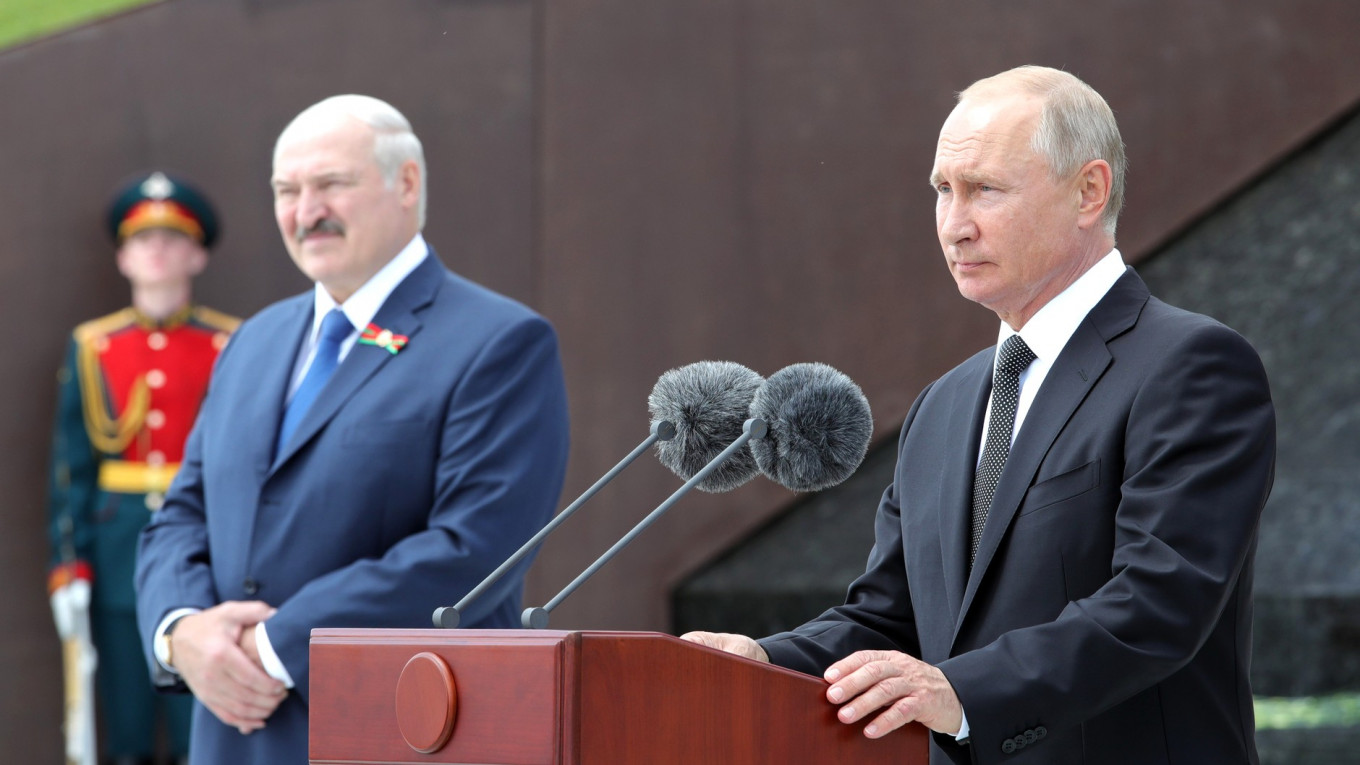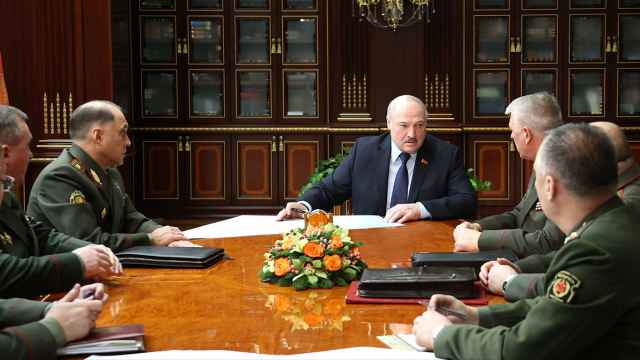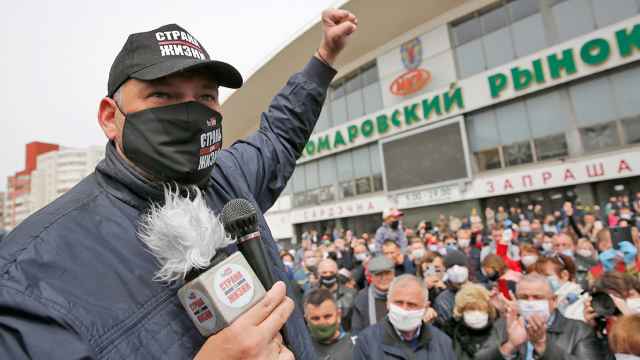On Thursday morning, the Russia-24 TV channel suddenly announced that it planned to air an interview with President Vladimir Putin that would cover the day’s hottest topics.
However, anyone hoping for information regarding the poisoning of opposition leader Alexei Navalny — about whose fate world leaders are constantly hounding Putin — or about the continuing mass protests in the Khabarovsk region ended up sorely disappointed.
The “top stories” turned out to be Russia’s “success” in combating Covid-19, its Sputnik V vaccine, how its economy is bouncing back from the crisis and the Kremlin’s position on Belarus.
In fact, the only actual news concerned the Belarus story, which was the real reason for the interview.
Putin used the interview to voice support for both Belarusian President Alexander Lukashenko and his plan to adopt a new constitution as the basis for new parliamentary and presidential elections. Commenting on the situation in Belarus, Putin said he felt that “the law enforcement agencies are exercising commendable self-control.” He also warned that he had created “a reserve group of law enforcement personnel” that he would only deploy if the situation spun out of control. He also revealed an agreement with Lukashenko according to which Russia would provide Belarus with $1 billion in aid.
The Kremlin obviously views the situation in Belarus through the prism of its geopolitical confrontation with the West. After a brief stalling maneuver to see whether Lukashenko’s ruling elite would remain loyal, the Kremlin finally decided to side with “its bastard” in Minsk. It did not help that the West exercised extreme caution to avoid provoking Russian intervention and that the Belarusian protestors are not discernibly pro-Western, much less anti-Russian.
The turning point in the Kremlin’s position actually came earlier, when Moscow sent media specialists, political strategists and “security experts” to Minsk at Lukashenko’s request.
Starting last weekend, state-owned Russian media made an abrupt change in the way they portrayed the situation in Belarus.
Yes, the Kremlin has no reason to love Lukashenko and it has derived some malicious pleasure from watching the Belarusian dictator squirm for the last 18 days, but Moscow has no desire to see the Belarusian regime toppled, especially by a popular uprising. So now, it seems, Putin is ready to help his poor fellow autocrat. Faced with a choice between preserving its alliance with the Belarusian regime — even with Lukashenko at the helm — and the prospect of regime change under pressure from society, the Kremlin clearly preferred the former.
Just as Vladimir Putin publicly expressed support for Lukashenko and confirmed his readiness to send in “law enforcement reserves” if necessary, the Levada Center released a survey on Russian attitudes towards the elections and protests in Belarus. It turns out that, like Putin, most Russians would prefer to preserve the status quo in the neighboring country.
Two of the most popular reasons cited for the unrest in Minsk were “provocations by Western forces” (39%) and “provocation by the opposition” (25%). Only a quarter of respondents held a favorable opinion of the Belarusian protestors. What’s more, a third were indifferent toward them and two fifths viewed them negatively. Even though only 48% believed the elections in Belarus had been fair or mostly fair, 57% said they would prefer to have Lukashenko remain in power than a member of the opposition take over.
Such popular sentiments — which could hardly be the result of one short week of brainwashing by state-controlled Russian media — are even more depressing than Putin’s statements.
They reveal not so much a lack of empathy for and solidarity with a fraternal neighbor, but that the Kremlin and its spin doctors have actually managed, over the course of many years, to color the way most Russians view the world. Now, fears of “losing Belarus” outweigh sympathy for the Belarusians themselves and their velvet protests. Ironically, however, this very attitude could cause Russia to lose Belarus, just as it has already lost Ukraine.
A Message from The Moscow Times:
Dear readers,
We are facing unprecedented challenges. Russia's Prosecutor General's Office has designated The Moscow Times as an "undesirable" organization, criminalizing our work and putting our staff at risk of prosecution. This follows our earlier unjust labeling as a "foreign agent."
These actions are direct attempts to silence independent journalism in Russia. The authorities claim our work "discredits the decisions of the Russian leadership." We see things differently: we strive to provide accurate, unbiased reporting on Russia.
We, the journalists of The Moscow Times, refuse to be silenced. But to continue our work, we need your help.
Your support, no matter how small, makes a world of difference. If you can, please support us monthly starting from just $2. It's quick to set up, and every contribution makes a significant impact.
By supporting The Moscow Times, you're defending open, independent journalism in the face of repression. Thank you for standing with us.
Remind me later.








